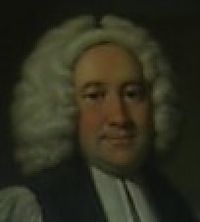
Edward Willes
Encyclopedia

Bishop of St David's
The Bishop of St David's is the ordinary of the Church in Wales Diocese of St David's.The succession of bishops stretches back to Saint David who in the 6th century established his seat in what is today the city of St David's in Pembrokeshire, founding St David's Cathedral. The current Bishop of St...
and later Bishop of Bath and Wells
Bishop of Bath and Wells
The Bishop of Bath and Wells heads the Church of England Diocese of Bath and Wells in the Province of Canterbury in England.The present diocese covers the vast majority of the county of Somerset and a small area of Dorset. The Episcopal seat is located in the Cathedral Church of Saint Andrew in...
and one of the most prominent English cryptanalysts of his time.
He was born in Warwickshire
Warwickshire
Warwickshire is a landlocked non-metropolitan county in the West Midlands region of England. The county town is Warwick, although the largest town is Nuneaton. The county is famous for being the birthplace of William Shakespeare...
, to a junior branch of the long-established Willes family of Newbold Comyn
Newbold Comyn
Newbold Comyn is a park that is found on the eastern edge of Leamington Spa, Warwickshire, England. It is described by some people as a country park in all but name.- History :...
; Sir John Willes, the long-serving
Chief Justice of the Common Pleas
Chief Justice of the Common Pleas
The Court of Common Pleas, also known as the Common Bench or Common Place, was the second highest common law court in the English legal system until 1880, when it was dissolved. As such, the Chief Justice of the Common Pleas was one of the highest judicial officials in England, behind only the Lord...
, was his brother.
He was educated at Oriel College, Oxford and graduated with a BA
Bachelor of Arts
A Bachelor of Arts , from the Latin artium baccalaureus, is a bachelor's degree awarded for an undergraduate course or program in either the liberal arts, the sciences, or both...
degree in 1712.
In 1716 he became a Decipherer for George II
George II of Great Britain
George II was King of Great Britain and Ireland, Duke of Brunswick-Lüneburg and Archtreasurer and Prince-elector of the Holy Roman Empire from 11 June 1727 until his death.George was the last British monarch born outside Great Britain. He was born and brought up in Northern Germany...
, and distinguished himself by deciphering messages between Swedish diplomats which were sympathetic to the Jacobite
Jacobitism
Jacobitism was the political movement in Britain dedicated to the restoration of the Stuart kings to the thrones of England, Scotland, later the Kingdom of Great Britain, and the Kingdom of Ireland...
cause. He was rewarded by the government by being granted the living of Barton in the Clay, Bedfordshire
Bedfordshire
Bedfordshire is a ceremonial county of historic origin in England that forms part of the East of England region.It borders Cambridgeshire to the north-east, Northamptonshire to the north, Buckinghamshire to the west and Hertfordshire to the south-east....
, which he held between 1718 and 1730.
He subsequently deciphered the correspondence between Francis Atterbury
Francis Atterbury
Francis Atterbury was an English man of letters, politician and bishop.-Early life:He was born at Milton Keynes in Buckinghamshire, where his father was rector. He was educated at Westminster School and Christ Church, Oxford, where he became a tutor...
, Bishop of Rochester
Bishop of Rochester
The Bishop of Rochester is the ordinary of the Church of England Diocese of Rochester in the Province of Canterbury.The diocese covers the west of the county of Kent and is centred in the city of Rochester where the bishop's seat is located at the Cathedral Church of Christ and the Blessed Virgin...
, and Jacobite exiles abroad between 1719 and 1722. His evidence at the trial led to the conviction and exile of Atterbury, and led to his being appointed a Canon of Westminster Abbey
Dean and Canons of Westminster
The Dean and Canons of Westminster are the ecclesiastical body of Westminster Abbey, a collegiate church of the Church of England and royal peculiar in Westminster, England. They meet in Chapter and are also known as the Dean and Chapter of Westminster....
.
In 1743 he became bishop of St. Davids and in 1744 he became Bishop of Bath and Wells. During his episcopate he undertook some repairs to the Bishop's Palace in Wells
Wells
Wells is a cathedral city and civil parish in the Mendip district of Somerset, England, on the southern edge of the Mendip Hills. Although the population recorded in the 2001 census is 10,406, it has had city status since 1205...
.
He was a popular and respected man- one of his sons was reportedly told by the Earl of Chesterfield
Earl of Chesterfield
Earls of Chesterfield, in the County of Derby, was a title in the Peerage of England. It was created in 1628 for Philip Stanhope, 1st Baron Stanhope. He had already been created Baron Stanhope, of Shelford in the County of Nottingham, in 1616, also in the Peerage of England. Stanhope's youngest son...
that he should try to imitate his father in everything. By his wife Jane he had five sons and four daughters.
He died in London in 1773, and is buried in Westminster Abbey
Westminster Abbey
The Collegiate Church of St Peter at Westminster, popularly known as Westminster Abbey, is a large, mainly Gothic church, in the City of Westminster, London, United Kingdom, located just to the west of the Palace of Westminster. It is the traditional place of coronation and burial site for English,...
.

